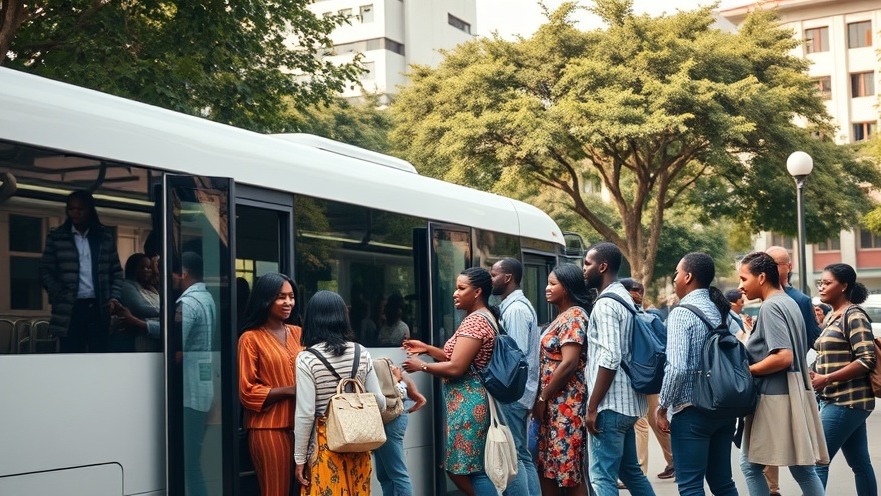
Revolutionizing Campus Transit: The Shift to Electric Buses
At the University of Lagos, a quiet transformation is underway as electric buses reshape student transportation. This new initiative is not just about getting from point A to B—it's about sustainability and cost-effectiveness that aligns with the future of mobility.
Key Benefits of Electric Buses
Students like Abigail Adekunle appreciate the affordability and convenience of electric buses. Since their introduction, these eco-friendly shuttles have reduced transportation fares by 50%, making it easier for students to travel across campus. Adekunle notes, "Although I wish they could provide more buses to eliminate the long queues," which underlines the growing demand for this service. Designed to be quiet and free of emissions, these buses present a significant environmental upgrade to previous transportation methods, aligning with the university's commitment to sustainability.
The Context of Change: Fuel Subsidies and Rising Costs
Before the deployment of electric buses, students relied heavily on traditional cabs and shuttle services that saw fares dramatically increase following government fuel subsidy removals. With prices skyrocketing to ₦200 for a single cab ride, switching to electric buses became an obvious choice for many. The University of Lagos student community has embraced this change, citing not only financial reasons but also concerns about the environment.
The Role of Alumni in Sustainable Development
This initiative marks a notable contribution by alumni of the University of Lagos, including those from Chart Eco Global Services and Ogata Global Resources. Their commitment to transforming campus mobility showcases the potential of grassroots innovation in addressing local challenges. As these electric buses continue to roll out, their impact extends beyond the university campus, potentially setting a precedent for similar initiatives across Nigeria.
Future Predictions: The Growing Importance of Sustainable Transportation in Nigeria
The successful integration of electric buses could signify a movement towards more sustainable urban mobility solutions across Nigeria. With a focus on reducing carbon emissions and enhancing reliability, the trend may inspire tech entrepreneurs and investors to support similar initiatives, further accelerating digital transformation in transportation and beyond.
Conclusion: A Call to Action
The positive changes brought about by the introduction of electric buses at UNILAG reflect a larger trend in adopting innovative solutions for transportation and sustainability challenges in Africa. As more cities and institutions are looking for ways to integrate eco-friendly technologies, now is the time for African startups and entrepreneurs to invest in solutions that not only address present needs but also pave the way for a sustainable future. Explore how you can contribute to the evolution of transportation and technology in Africa today!
 Add Row
Add Row  Add
Add 


Write A Comment